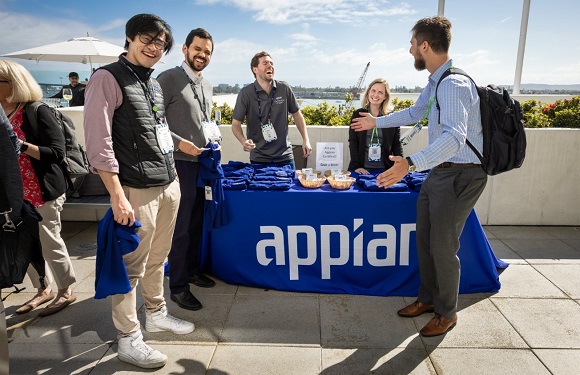Appian breaks bottlenecks on process mining insight
Developers love functions, businesspeople love insights.
In fairness, developers do love insights too, but (on balance) they don’t hanker after them quite as fervently as businesspeople who not only love insights, they like ‘actionable insights’ that lead to so-called ‘outcomes’ aligned to the core project goals, mission statements and the commercial bottom line which they are pledged to serve.
Enterprise software development platform company Appian is leaning on its low-code heritage and its wider appreciation of the business landscape to now develop its somewhat SEO-enriched ‘Insight to Action’ initiative for process mining.
The programme is designed to accelerate the value of process mining initiatives by providing mining preparation, analysis and service hours to implement process improvements for single a one-time fixed fee.
As TechTarget reminds here us, “Process mining software is a type of programming that analyses data in enterprise application event logs in order to learn how business processes are actually working. The goal of process mining software is to identify bottlenecks and other areas of inefficiency so they can be improved.”
Often used to optimise workflows in process-oriented disciplines, such as business process reengineering (BPR) and business process management (BPM), process mining advocates suggest that the technology can analyse millions (one day, perhaps billions) of transaction records in order to identify deviations from normal workflows that might indicate risk, a need to implement change or opportunities to tune, augment and extend existing software systems.
Bottlenecks & roadblocks
Appian itself echoes this clarification of the technology and says that process mining lets organisations uncover bottlenecks and other inefficiencies in the business processes.
But, claims Appian, ‘most’ process mining technologies present roadblocks that prevent organisations from achieving real value.
“Data governance (both security and quality) is a major concern, as are the specialised data skills required, the fact that the results of mining can be difficult to interpret and the fact that most process mining is typically disconnected from the automation technologies needed to implement improvements,” notes the company, in a technical product statement.
The organisation is upbeat its new development and suggests that Appian Process Mining simplifies what it takes to uncover process inefficiencies, check conformance to detect non-compliant activities and perform automated root cause analysis to identify patterns and explain unwanted process behaviour.
According to the development team behind this service, “Appian unifies process mining with automation on a single low-code platform, making it easy to implement changes and achieve continuous process improvement. All of this is underpinned by Appian’s data fabric which enables highly-secure enterprise-wide data unification without complex data management.”
The real value in process mining
Detailing the working mechanics of this software initiative, Appian says the new Insight to Action program helps organisations unlock the value of process mining through a 12-week ‘insight phase’ to start with. During this period, Appian will perform the assessment and data transformation required to identify and prepare a process for mining, complete the mining analysis and provide a findings report with recommendations.
During the subsequent four-week ‘action phase’, Appian will create a project plan addressing the findings, design an optimised workflow, implement the new process, then re-run the process mining to validate the improvement.
Specifically, this includes guidance selecting the appropriate Appian process to mine; transformation of extracted data for the use case in hand; process mining analysis itself; performance and & root cause analysis presentations & visualisations; and process optimisation consultation with recommendations.
Creating a collaborative charter
Additional phases feature a success plan which sees the creation of a collaborative charter to evaluate the key components of the mined process with a project plan to achieve continuous improvement. There are also success checkpoints to provide proactive, recurring sessions to assess the progress of the success plan.
An end phase sees the development of a final process mining readout to validate process improvements

Image source: Appian



